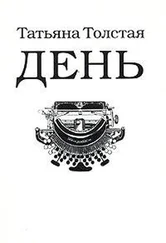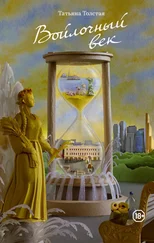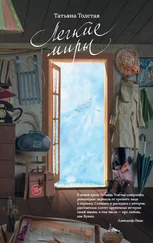Before the Revolution of 1917, Junior installed an electric generator on the shore of the Little Lake, and subsequently the White House had power. When I was a kid, you could still see the limestone slabs, a platform of approximately two square meters, upon which he placed the generator. The grass of oblivion—little three-leaf white clovers—was already forcing its way through the cracks between the slabs. It was sweet, we used to eat it.
Now I alone remember where the generator stood, where the nostrilled limestone slabs disappeared into the ground. The new folks don’t need to know this. And I won’t tell them.
The other thing that was left behind by Dmitriev Junior was a large, yellowing collage: photos of boring mustachioed faces in ovals—engineers, no doubt, who had graduated with distinction (or without) from some Polytechnic Institute and who were burning with desire to apply their knowledge for the glory and benefit of the Fatherland. A carved black frame, dead flies, glass. All those faces in ovals were most probably arrested and executed.
Junior’s heirs held on to both houses for a long while, but then the government started closing in—it was forbidden to have multiple properties—and so they sold the hunting lodge, and then one little piece of the land, and then another. Meanwhile the house grew too small for our clan—there were seven of us by then—and so mother bought the dacha next door. With a view of the White House. Few are so lucky.
§
A carpenter nicknamed “Curly”—the aforementioned imbecile—built our dacha. One of the kids gave him the moniker. “Mommy, Curly is here!” Finding it endearing, the carpenter started calling himself “Curly” after that. No one remembers his real name. He’d built the house right after the war, for the previous owner, a pharmacist named Yanson, who was planning to rent out the rooms. Curly’s stupidity manifested itself variously; for example, all the rooms on the first and second floors, save for one, faced north, and not a single ray of sunshine ever found its way to them. And so the house grew moldy and rotten, all the quicker because Curly, unable to refrain from stealing building materials, constructed the dacha with no foundation. In the faraway corner of the garden he erected a roomy Finnish outhouse with two seats—a two-holer—but as he absconded with the partition wall, an interesting opportunity presented itself: you could now visit the shitter in pairs. Curiously, no one ever took advantage of this.
Curly was a jack-of-all-trades, gardener as well as carpenter, and he loved his work. Hammering, tearing things apart—he found it all equally interesting. After building our crooked house that listed to one side, he began to feel a sense of ownership: he’d come visit from the city uninvited; he’d enter without knocking, toolbox in tow, all his nails and pliers, and, with the mysterious air of an artisan, he would get to work on senselessly improving something. Sounds of hammering and the wheezing of a hacksaw filled the air, until he emerged from the basement or from the attic, or climbed out from the shed, squinting in the sunlight, and with a log or piece of plywood in his hands and that mysterious artisanal smile still plastered across his face, he’d take it all home. If you weren’t on high alert you could end up losing a balcony: Curly was once caught removing the support beams that held ours up—the very same support beams he’d attached to the wall ten years earlier. We didn’t notice, however, when he managed to disassemble the roof over the firewood shed.
Apparently he viewed any house he came across as a potential source of building materials that might come in handy somewhere else: he did construction and repairs in other communities, and if he happened to arrive with some bricks or plywood, you could be sure that he’d hacked it off somebody else’s house to attach it to yours. If after Curly’s visit we discovered a shovel, it meant that in Vaskelovo, or in Gruzino, or maybe even in Elisenvaara, a shovel was missing; if Curly, smiling assuredly, carried away a pane of glass, it was immediately clear that it would soon sparkle in somebody else’s window. This man was carrying out a circular organ transplant, so to speak, attaching one person’s ear to another’s leg—I have no doubt he used our outhouse partition to fashion an inelegant garden table for the unsuspecting owners of a tiny plot of land in the unsavory village of Oselki.
So, as it was, the hallway leading to the bedrooms was on the sunny southern side of the house—one obviously couldn’t live in it, as that would have been strange—while all the bedrooms faced north and thus were always cold and dark. We did have woodstoves for heating, but they fell apart and stopped working back when I was a child, and no wonder: the dampers and some of the bricks had “disappeared.” I’ll let you guess where they went.
The upstairs hallway unexpectedly morphed into a sunroom midway through, mirroring the one below it in shape, and it, too, contained the magical rhomboidal panes of red and blue found in the downstairs verandah. I sometimes used to go there to look through the blue.
§
The third shift saw the grannies—Aunty Lola and Klavdia Alekseevna—come to the dacha. Aunty Lola was our deceased grandmother’s friend. She also considered our dacha to be her home. She always sat in the same old chair, drank from her own special cup, and always slept in the same bedroom on the second floor—the dampest one—which she forbade anyone to use even in her absence, not that anyone wanted to. Anyone else would have simply succumbed to the dampness and died, but Aunty Lola was one of the “Alexander grannies”—born during the reign of Alexander III—and a very sturdy woman, who favored the cold-water cure followed by rubbing oneself with a waffle-weave towel, and so on. In Leningrad, Aunty Lola occupied a room of three square meters in a communal apartment—yes, three square meters exactly. It was originally the janitor’s closet. Her previous home had been blasted to smithereens by the German air raids during the siege of Leningrad. Une explosion d’obus.
I’ve been to that tiny room; strictly speaking, it could fit only a bed. If one were to get up, another person couldn’t even squeeze by. So Aunty Lola used to receive people on the bed: she and her guest would sit side by side, talking. Sometimes she’d go out into the hallway to put the teakettle on—in that case, her guest would lift their legs so Aunty Lola could get past. A minuscule table was wedged in by the head of the bed, because, after all, you need to put your tea down somewhere.
As a result, that damp bedroom in our dacha was like a palace to Aunty Lola. She’d stop by the neighbors who sold flowers and strawberries and buy herself a bunch of pink peonies; she’d spritz herself liberally with a Riga-made perfume called “Acorn,” open the door to the balcony (the very one that Curly tried to dismantle), sit in her wicker chair, and, with her bad leg propped up, she would enjoy a novel in English. Or French. Or German. She was equally adept in all three.
Being a soldier at heart, Aunty Lola adhered to a strict schedule, even of enjoyment—as soon as her leisure time was up, she would limp down to the first floor (the creaking stairs announced her approach—run!) and grab one of us for Russian dictation, or to study English, French, or German grammar. An hour a day. That is, she’d teach one of us for an hour, and then another one of us, and then another…. (Of course, we all saw this as a chore and hated it, but only thanks to Aunty Lola was I accepted to university, and only thanks to her do I still have near-perfect spelling.)
Aunty Lola was obnoxiously honest, unbearably straightforward, suffocatingly slow. She spoke in an elevated literary language, as if she lived inside a Henry James novel, and punctuated what she said with her voice. She was a very good person. She never cheated anyone. Being teenagers, we ran from her for exactly that reason.
Читать дальше






